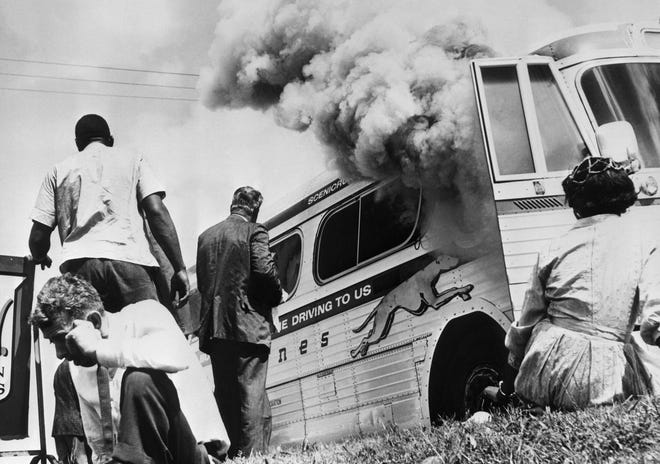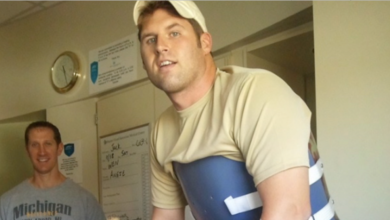

Alabama had more people die last year during the onset of the COVID-19 pandemic than births, a top health official said, as the US continues to grapple with rising coronavirus cases and deaths."This past year, 2020, is going to be the first year that we know of in the history of our state where we actually had more deaths than births," Alabama Health Officer Dr. Scott Harris said Friday during a news briefing."Our state literally shrunk," he said.Video above: Over 660K flags on National Mall mark COVID deathsPreliminary data shows that 64,714 people died in Alabama in 2020 while there were 57,641 births, Harris said. In 2019, the state recorded 54,109 deaths and 58,615 births, according to the health department.According to state data, 7,182 people in Alabama died due to COVID-19 in 2020 and total COVID-19 deaths reached 13,209 as of Saturday.Even though more than half of the country is fully vaccinated, COVID-19 cases, deaths and hospitalizations have been rising over the past few months -- and it's not impacting everywhere equally.In Alabama, where 41% of people are fully vaccinated, according to data from the U.S. Centers for Disease Control and Prevention (CDC), officials said more hospital beds have recently become available, though it's not because people are recovering from the virus."It is not because these patients are miraculously getting better and going home. It's because they're dying," Dr. Kierstin Kennedy, the chief of hospital medicine at the University of Alabama Medicine.Of Alabama's 67 counties, 65 have a "high" level of coronavirus transmission, and two are at the "substantial" tier, state data shows.Kennedy noted that most of the vaccinated patients she has seen get extremely sick or die are older or have significant co-morbidities that negatively affect their immune systems."This is not a surge of the young vaccinated that are six months out from their shots. This is a surge of the unvaccinated," Kennedy said.It's a similar story in Mississippi, which now has the highest amount of deaths per capita from COVID-19, surpassing New Jersey, which had long held the worst rate due to its massive outbreak early in the pandemic. Mississippi has one of the lowest rates of vaccination in the country with 42% of all residents fully vaccinated, trailing the national average of around 54%, according to CDC data.In Kentucky, nearly 85% COVID-19 deaths have been in partially or unvaccinated people, Gov. Andy Beshear said Thursday. The partially vaccinated or unvaccinated also accounted for more than 87% of COVID-19 cases and about 92% of hospitalizations, he added.The governor urged people to get vaccinated to protect themselves and others as well as to help the state's economy recover."I hope that you ... hear very clearly that the number one thing that we can do to get through this is to get vaccinated. By percentage, 90+ percent of folks that end up hospitalized are unvaccinated. So how do we not overrun our hospitals? We get vaccinated."COVID-19 cases among pregnant people riseOne of the groups health experts are urging to get vaccinated is pregnant people, among whom COVID-19 deaths appear to have recently spiked.In Mississippi, at least eight pregnant people who were not fully vaccinated have died of COVID-19 since late July, according to Dr. Thomas Dobbs, the state's medical officer. One person was partially vaccinated, and seven were not vaccinated at all.In total, 15 pregnant people have died from COVID-19 in Mississippi, and officials are analyzing information on 72 stillbirths that have affected COVID-infected pregnant people in the state, Dobbs said. That appears to be twice the usual stillbirth rate."Please get vaccinated," Dobbs said at one of two news conferences this month that addressed the topic. "You've got to protect yourself; you've got to protect your baby."In Alabama, at least seven pregnant people have died from COVID-19 since the onset of the pandemic, according to Harris, the state health officer. The state also averaged 23 pregnant people hospitalized with the virus over the past week, he said Friday."Your OB/GYN is entirely focused on your health and your baby's health. And all that matters to them is a good outcome for you and for the baby," Kennedy said. "So if the OB/GYN is saying that you need to get (the vaccine), you gotta listen to that."The CDC reported that COVID-19 deaths in pregnant people in the U.S. appear to have ticked up in August and recommends that pregnant people get the COVID-19 vaccine.About 25.1% of pregnant people age 18 to 49 in the U.S. had received at least one dose of a vaccine during pregnancy as of September 11, according to the CDC's latest published data.People are leaving their jobs due to vaccine mandatesThe U.S. had vaccinated 54.5% of its total population as of Saturday, CDC data shows. And as some institutions, including health care facilities, roll out vaccine requirements, there has been some pushback.At least 125 part-time employees from the Indiana University Health system have lost their jobs for not complying with vaccination requirements, spokesperson Berkley Rios told CNN Friday."Indiana University Health has put the safety and well-being of patients and team members first by requiring employees to be fully vaccinated against COVID-19 by September 1," Rios said. "After a two-week unpaid suspension period ending September 14, a total of 125 employees, the equivalent of 61 full-time employees, chose not to receive the COVID-19 vaccine and have left the organization."Rios added that the impact on staffing will be minimal as the health care system was already working to fill those positions.Meanwhile in South Carolina, the state has reached a milestone of vaccinating 50% of eligible residents."Reaching this 50 percent benchmark is a testament to the countless hours (the Department of Health and Environmental Control) and partner staff have put into putting these life-saving doses into arms," DHEC Director Dr. Edward Simmer said.Gov. Henry McMaster added that choosing to receive the vaccine is personal."Two things are clear — the most effective way to protect ourselves from COVID-19 is to get vaccinated, and the vaccine is readily available in every part of the state. If you decide to get vaccinated after thoughtful consideration of all the facts, now is the time to do it," McMaster said.
Alabama had more people die last year during the onset of the COVID-19 pandemic than births, a top health official said, as the US continues to grapple with rising coronavirus cases and deaths.
"This past year, 2020, is going to be the first year that we know of in the history of our state where we actually had more deaths than births," Alabama Health Officer Dr. Scott Harris said Friday during a news briefing.
"Our state literally shrunk," he said.
Video above: Over 660K flags on National Mall mark COVID deaths
Preliminary data shows that 64,714 people died in Alabama in 2020 while there were 57,641 births, Harris said. In 2019, the state recorded 54,109 deaths and 58,615 births, according to the health department.
According to state data, 7,182 people in Alabama died due to COVID-19 in 2020 and total COVID-19 deaths reached 13,209 as of Saturday.
Even though more than half of the country is fully vaccinated, COVID-19 cases, deaths and hospitalizations have been rising over the past few months -- and it's not impacting everywhere equally.
In Alabama, where 41% of people are fully vaccinated, according to data from the U.S. Centers for Disease Control and Prevention (CDC), officials said more hospital beds have recently become available, though it's not because people are recovering from the virus.
"It is not because these patients are miraculously getting better and going home. It's because they're dying," Dr. Kierstin Kennedy, the chief of hospital medicine at the University of Alabama Medicine.
Of Alabama's 67 counties, 65 have a "high" level of coronavirus transmission, and two are at the "substantial" tier, state data shows.
Kennedy noted that most of the vaccinated patients she has seen get extremely sick or die are older or have significant co-morbidities that negatively affect their immune systems.
"This is not a surge of the young vaccinated that are six months out from their shots. This is a surge of the unvaccinated," Kennedy said.
It's a similar story in Mississippi, which now has the highest amount of deaths per capita from COVID-19, surpassing New Jersey, which had long held the worst rate due to its massive outbreak early in the pandemic. Mississippi has one of the lowest rates of vaccination in the country with 42% of all residents fully vaccinated, trailing the national average of around 54%, according to CDC data.
In Kentucky, nearly 85% COVID-19 deaths have been in partially or unvaccinated people, Gov. Andy Beshear said Thursday. The partially vaccinated or unvaccinated also accounted for more than 87% of COVID-19 cases and about 92% of hospitalizations, he added.
The governor urged people to get vaccinated to protect themselves and others as well as to help the state's economy recover.
"I hope that you ... hear very clearly that the number one thing that we can do to get through this is to get vaccinated. By percentage, 90+ percent of folks that end up hospitalized are unvaccinated. So how do we not overrun our hospitals? We get vaccinated."
COVID-19 cases among pregnant people rise
One of the groups health experts are urging to get vaccinated is pregnant people, among whom COVID-19 deaths appear to have recently spiked.
In Mississippi, at least eight pregnant people who were not fully vaccinated have died of COVID-19 since late July, according to Dr. Thomas Dobbs, the state's medical officer. One person was partially vaccinated, and seven were not vaccinated at all.
In total, 15 pregnant people have died from COVID-19 in Mississippi, and officials are analyzing information on 72 stillbirths that have affected COVID-infected pregnant people in the state, Dobbs said. That appears to be twice the usual stillbirth rate.
"Please get vaccinated," Dobbs said at one of two news conferences this month that addressed the topic. "You've got to protect yourself; you've got to protect your baby."
In Alabama, at least seven pregnant people have died from COVID-19 since the onset of the pandemic, according to Harris, the state health officer. The state also averaged 23 pregnant people hospitalized with the virus over the past week, he said Friday.
"Your OB/GYN is entirely focused on your health and your baby's health. And all that matters to them is a good outcome for you and for the baby," Kennedy said. "So if the OB/GYN is saying that you need to get (the vaccine), you gotta listen to that."
The CDC reported that COVID-19 deaths in pregnant people in the U.S. appear to have ticked up in August and recommends that pregnant people get the COVID-19 vaccine.
About 25.1% of pregnant people age 18 to 49 in the U.S. had received at least one dose of a vaccine during pregnancy as of September 11, according to the CDC's latest published data.
People are leaving their jobs due to vaccine mandates
The U.S. had vaccinated 54.5% of its total population as of Saturday, CDC data shows. And as some institutions, including health care facilities, roll out vaccine requirements, there has been some pushback.
At least 125 part-time employees from the Indiana University Health system have lost their jobs for not complying with vaccination requirements, spokesperson Berkley Rios told CNN Friday.
"Indiana University Health has put the safety and well-being of patients and team members first by requiring employees to be fully vaccinated against COVID-19 by September 1," Rios said. "After a two-week unpaid suspension period ending September 14, a total of 125 employees, the equivalent of 61 full-time employees, chose not to receive the COVID-19 vaccine and have left the organization."
Rios added that the impact on staffing will be minimal as the health care system was already working to fill those positions.
Meanwhile in South Carolina, the state has reached a milestone of vaccinating 50% of eligible residents.
"Reaching this 50 percent benchmark is a testament to the countless hours (the Department of Health and Environmental Control) and partner staff have put into putting these life-saving doses into arms," DHEC Director Dr. Edward Simmer said.
Gov. Henry McMaster added that choosing to receive the vaccine is personal.
"Two things are clear — the most effective way to protect ourselves from COVID-19 is to get vaccinated, and the vaccine is readily available in every part of the state. If you decide to get vaccinated after thoughtful consideration of all the facts, now is the time to do it," McMaster said.
Source link








